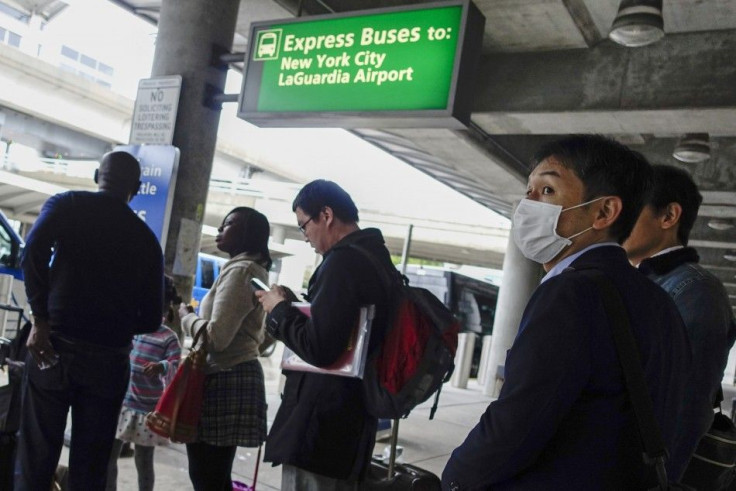US Dedicates 5 Airports for Travellers From Ebola-Stricken Nations, Lawmakers Want Travel Ban

The United States has advised travellers from Ebola-stricken nations may only be able to enter the country through five of its international airports. These are the Washington Dulles International Airport, Chicago's O'Hare International Airport, New York's John F. Kennedy International Airport, Newark Liberty International Airport and Hartsfield-Jackson Atlanta International Airport.
The measure, which started Wednesday, effectively routes travellers from Guinea, Liberia and Sierra Leone to those five airports. Upon arrival, they will undergo mandatory interviews and temperature checks. The Centres for Disease Control and Prevention said the five airports were chosen because it is where most travellers from those countries enter, accounting 94 per cent of arrivals. The U.S. receives roughly 150 people daily or 1,000 per week from those three nations.
There are no direct flights from the three west African nations to the U.S. However, three big international carriers serving Liberia, Guinea and Sierra Leone will be affected of the redirecting. These are Air France-KLM SA, Brussels Airlines and Royal Air Maroc of Morocco. They carry passengers whose flights originated in those three countries.
Jeh Johnson, Homeland Security Secretary, said the measure had been discussed and agreed with the affected airline carriers. "We are working closely with the airlines to implement these restrictions with minimal travel disruption," Johnson said in a statement. Measures to identify and screen anyone at all "land, sea and air ports" of entry into the United States are now in place, he added.
Apart from the airlines, the DHS also had to coordinate, through the State Department, other countries about the new protocol. "There's a lot of coordination that had to go into developing and implementing this policy."
The new restrictions are "a good start," Rep. Fred Upton (R-Mich.), who leads the House Energy and Commerce Committee, said in a statement. It will help "close a gap" that would compel affected travellers to undergo screening. But it is most certainly "not a complete solution." As of Tuesday, 562 travelers had undergone screening at the five airports, according to the DHS. None tested positive for Ebola.
Still majority of U.S. lawmakers push for a ban on flights from the three west African nations. They highly believed the screening and temperature checks are still not fool-proof to detect potential the Ebola virus is already present in a traveler. A list managed by The Hill showed that as of Oct. 21 at 4:04 p.m., 74 members from the House and 15 from the Senate are in favour of imposing a travel ban from the three Ebola-affected nations.
Thomas Eric Duncan, the Liberian man who was the first person in the United States to have died from Ebola, was actually diagnosed with the disease a few days after arriving from West Africa. He died on Oct. 8.





















